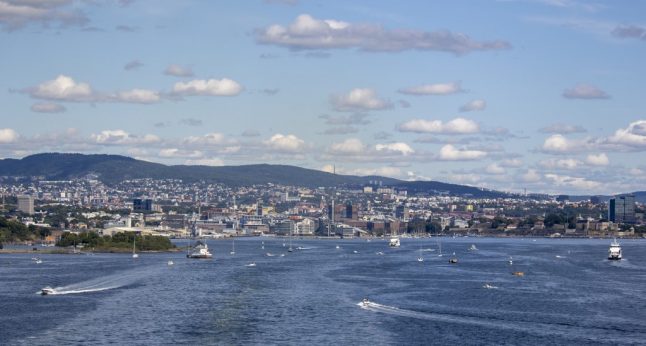“We cannot hesitate in the face of such a dramatic development. We must reduce the infection before it has far-reaching consequences for the elderly, vulnerable and our health care system.
“We are now introducing a social lockdown of Oslo,” says Oslo councillor Raymond Johansen.
According to Oslo municipality, these are the measures that will be introduced from midnight on Monday 9 November:
- All indoor events are banned. The only indoor social activity allowed is gatherings in private homes, where there can be up to ten people, if infection control measures are complied with.
- Weddings, confirmations and other family gatherings where there are more than ten people are not allowed.
- All businesses where cultural and leisure activities take place to be closed, except libraries.
- Cinemas, theatres, playgrounds, gyms, sports and swimming pools to be closed.
- Grass roots sport (breddeidrett) and leisure activities for adults to stop.
- Bars banned from serving alcohol.
- Restaurants can stay open but without serving alcohol.
- Passengers and drivers in taxis must wear face masks.
- Shops and malls must ensure the number of customers does not prevent two-metre social distancing being maintained.
- Red level to be introduced in upper secondary schools and adult education, with reinforced infection control measures and smaller groups.
- Red level is being considered in middle schools in the coming weeks.
Here are some exceptions:
- Libraries will remain open.
- Children's and youth sports can train, but not participate in competitions and tournaments.
- Organised leisure activities for children and young people can continue.
- Elite sports can be carried out but with the spectators outside not inside.
- Funerals and burials can be held.
The measures apply from Monday at midnight and the duration depends on the development in the infection rates, according to Oslo municipality.
“It is quite obvious that we must stick to the measures, until the reproduction number for infection is well below 1”, says councillor Raymond Johansen. The R number in Oslo is currently 1.3, after the increase in infection in recent weeks.
In addition, previously adopted measures will be continued. These are:
- Face masks must be worn in an indoor public place if a one-metre distance cannot be maintained.
- Face masks must be worn inside restaurants by employees and customers if not seated.
- It is forbidden to arrange or attend private gatherings with more than 10 people present. The ban applies both indoors and outdoors, and regardless of age.
- No admission into bars and nightclubs after 22.00.
- Companies must make provisions for employees to work from home wherever possible.
- Oslo municipality advises against meeting more than 10 people per week outside of work, school and leisure activities.
Upper secondary schools and adult education will move to the red level from Monday.
“How this is solved in practice will vary somewhat from school to school. One must be prepared for a combination of homeschooling and practical schooling. All schools have experience with red level. But it's going to be tough nonetheless”, says school councillor Inga Marte Thorkildsen.
Kindergartens and primary schools will continue to operate at the yellow level. Although the districts have been informed that they can reduce the opening hours in the kindergartens if it is necessary to be able to comply with the infection control rules.
Lower secondary schools have been asked to prepare and make plans for the introduction of the red level. It will be considered whether this is necessary within the next two weeks, as recommended by the government.
“We are taking these drastic measures for now to reduce the infection and facilitate the detection of infection, but also to avoid closing down kindergartens, schools and leisure activities for children.
“We are also keeping the libraries open. It is important for children and young people that some of their areas are kept open when so much closes down”, adds Inga Marte Thorkildsen.
On Thursday, a national tightening of coronavirus restrictions were announced by Prime Minister Erna Solberg and on Friday, further restrictions. were introduced in in western city Bergen.
READ MORE: Norway announces strict new coronavirus measures: Here are the details to know
READ MORE: More Norwegian cities consider local coronavirus restrictions



 Please whitelist us to continue reading.
Please whitelist us to continue reading.
Member comments